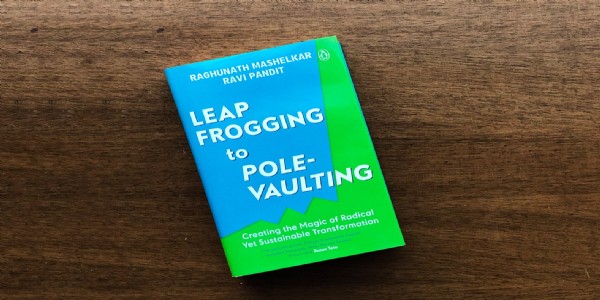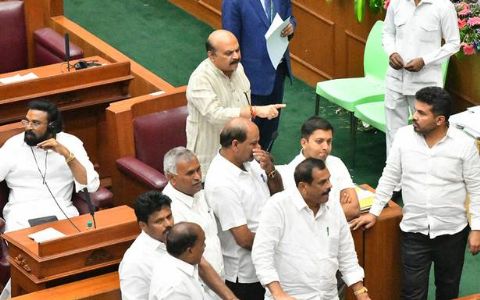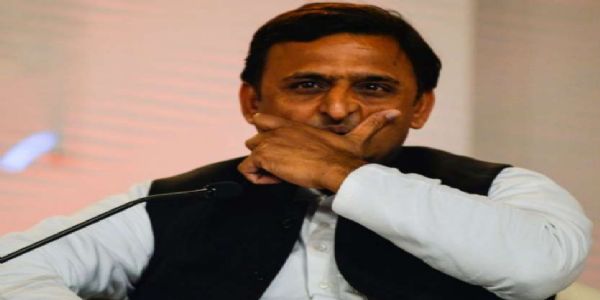Janjati Gaurav Divas : Birth Anniversary of Great Freedom Fighter, Martyr- Bhagwan Birsa Munda
Total Views | 973
-Kedar Kulkarni
The Birth Anniversary of Bhagwan Birsa Munda is celebrated as a day of pride by every nation loving person particularly janjatis for special significance of his life mission that has brought seminal changes in their lives. The entire nation reveres him and looks up in admiration to his 14 feet tall statue in Parliament and a portrait in Parliament Museum that herald loudly and clearly the resolve for the development of janjatis by enlivening their values and ethos. The formation of Jharkhand State on his birth anniversary emphasizes the commitment of the country to the spirit and values he fought for. The War Cry “Birsa Munda ki Jay” of the Bihar Regiment of the Army emboldens everyone to fight for the security and protection of the great nation.
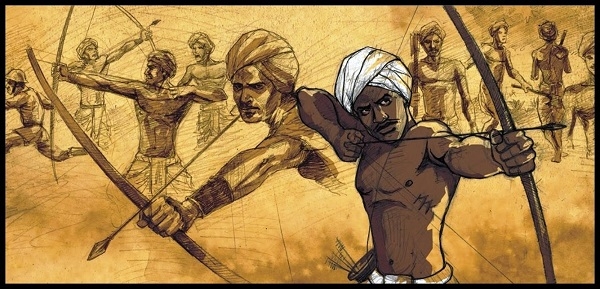
Bhagwan Birsa Munda was a visionary person. Rajya Sabha picture gallery pays tribute to this great leader as a peerless protagonist of tribal rights. He was a constructive genius, who made pioneering efforts to unite janjati (tribal) people for their political and cultural emancipation from the British and Christian missionary supremacy. He inspired simple and honest janjatis with the supreme spirit of nationalism. He was a great patriot and ultimately sacrificed his life infusing hope and aspirations in millions of people and became a martyr. His struggle was a role model for the development of janjatis.
The janjatis have a valorous history of continuous armed struggle to overthrow the British colonial administration since 18th century. In 1784-85 Mahadev Koli tribe in Maharashtra and Tilka Manjhi of Santhal tribe raised the sword; Kurchiyas under the leadership of Talakkal Chandu attacked British in 1802 and then led organized struggle against the British invasion in Wayanad in 1812; in the North East Singphos attacked British forces in Sadiya in 1830s; Kol tribe in Chotanagpur area raised the armed struggle in 1832; the Khonds in Orissa fought in 1850; the Great Freedom Struggle by Sidho-Kanho in Santhal region was in 1855; Nilambar-Pitambar of Kharwar tribe have immense contribution in the freedom struggle of 1857 in Jharkhand, Bhagoji Naik led the struggle of Bhils in 1857-58; RaghunathShah and ShankarShah’s sang revolutionary songs before being torn asunder into tiny pieces by cannon balls for leading Gondwana’s battle against the British; the Lushai janjati people of Mizoram attacked British forces in 1860; the Sentinelese janjati people of Andaman and Nicobar island attacked British in 1883; Shambudhan Phonglo from Dimasa janjati fought in 1883 against the British in Dimasa areas of Assam; the Angami Nagas revolted against British around 1880s; the British government was afraid of Tantya Bhil’s revolutionary activities in late 1890s, Bhagwan Birsa Munda embodied this energy in his armed struggle in 1895.
Bhagwan Birsa Munda was born on November 15, 1875 in Ulihatu village of Kunti district in Jharkhand in Chotanagpur plateau. He experienced, as he grew up, that the British were attracted to that region for its vast natural resources, forest wealth and minerals. He realized that this led to the rise of various ugly and terrible changes not only in the traditional janjati agrarian system but also in janjati ancient faith and culture. These ugly changes such as first Forest Policy of 1894 were conclusively introduced for reinforcing and sustaining an exploitative British colonial system making the life of janjatis inhabiting this region extremely difficult. He also realized that the Christian missionary activities in the garb of school education were annihilating the vigor and vitality of janjatis by tearing apart their beliefs and customs for proselytization. He was intimidated and bullied to eat cow meat which was sacred to him in the mission school. He realized their deception and deceit for altering their ancient janjati faith into Christianity thereby making the future of tribes very bleak.
In such circumstances prevailing during the last quarter of the nineteenth century Bhagwan Birsa Munda rose like a phoenix. He asserted that progress and change, whether in land and agriculture or in faith and culture will be possible only if it is rooted in values and ethos of janjati tradition.
During his lifetime of 25 years the flame of social and cultural revolution ignited by him brought seminal changes in the life of the tribes of the country. He energized youths to fight armed struggle against the oppressive British colonial system which he believed was the mother of all evils. The youths with tremendous trust and confidence formed a strong organization to bring in social reforms as well. These social reforms were meant to make life of common janjatis more and more healthy as well as cheerful. The reforms that Bhagwan Birsa urged for were encompassing every aspect of janjati life such as to live human life free from any addiction so as to keep the precious soul and body healthier for dedication to the almighty God; every house should be kept neat and clean and should have a Tulsi plant in its courtyard; every household should diligently care for cow; the mother earth should not be tilled on Thursday, and many such simple and universal principles
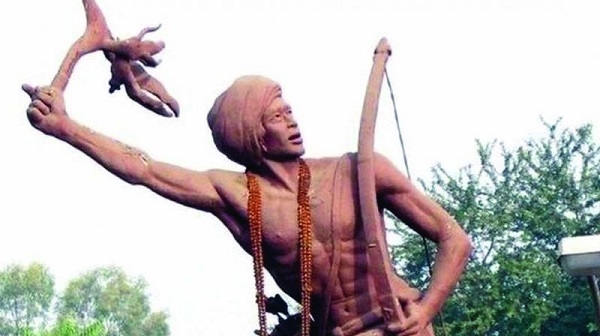
The armed freedom struggle against the British oppression highlighted the spirit of nationalism reminding the British colonial system that the spirit of 1857 was alive even in remote interior mountainous areas of the country. He proclaimed the slogan “Maharani raj tundu jana oro abua raj seter jana”. (Let the kingdom of the British queen be ended and our kingdom be established) During his intense armed struggle he realized that the missionary network informs about their activities to the British authorities to annul the janjati spirit of freedom. The people understood that the missionaries were in collaboration with the British and even spying for them. Bhagwan Birsa raised the alert in a simple slogan “Sahab, Sahab, Ek Topi.” Gradually everyone realized that church activities were never striving for justice to the janjatis as they always claimed to be so. It ultimately resulted in an incident on Dombari Hill which was a precursor to Jalianwala Bag massacre of 1919 in Punjab in cruelty and savagery of the British when they opened fire on the janjatis gathered under the leadership of Bhagwan Birsa.
Bhagwan Birsa was imprisoned by the British on 3rd February, 1900. He took his last breath in Ranchi Jail on June 9, 1900, at the age of 25. Even though he had no symptoms of the disease, the British authorities claimed that he died of cholera. Several tribal leaders speculated that jail authorities might have poisoned him. Even his death highlighted the British cruelty and crookedness.
Bhagwan Birsa Munda emphasized comprehensive concept of change and progress underscoring janjati customs and character.
Bharat Mata ki Jay
Bharati Web





